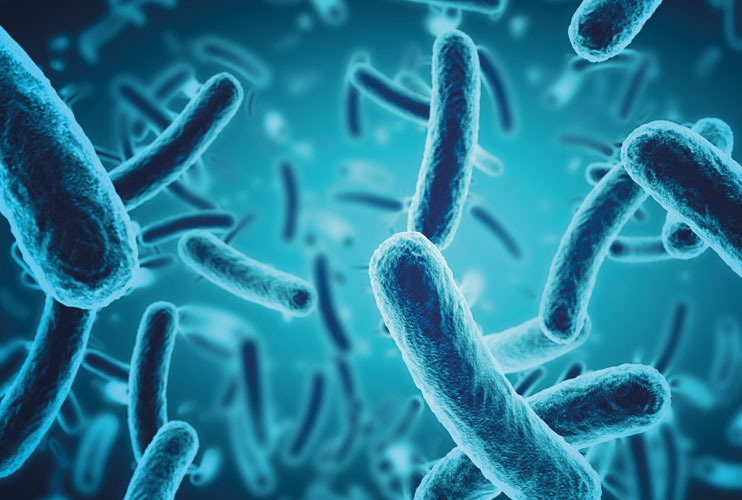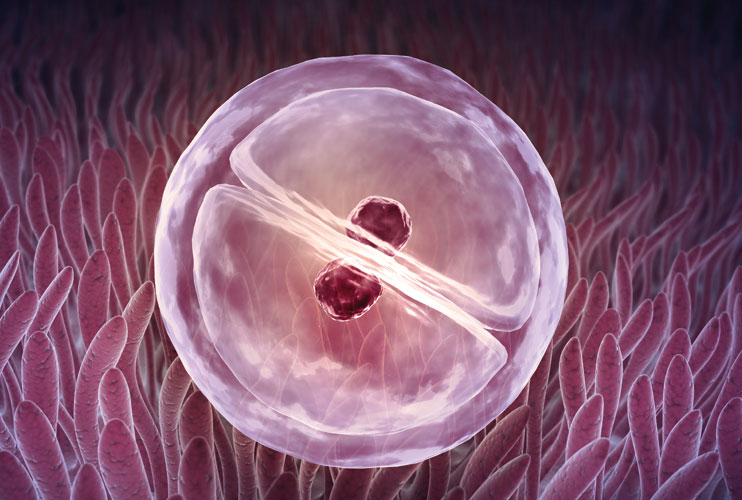The gut flora or human microflora is comprised of trillions of different microorganisms. Although each may have its own roles and functions, we currently believe that diversity is the most important criteria for health benefits. There are as many microbial cells as human cells in the body which indicates the vital importance of ensuring the microbiome is in good health.
Our gut microflora offer us a wide variety of potential health benefits, here are six important functions of the microbiome:
1. Immunity
Protection from invading pathogens; 70% of our immune cells reside in our gut. This means that in order to have a healthy immune system we need to take great care of our digestive function.
2. Short chain fatty acids
Beneficial gut bacteria promote the correct bowel acidity and SCFA short chain fatty acid production through the microbial fermentation of dietary fibres. Eat plenty of fruit, vegetables and legumes, all plant foods containing fibre which is then fermented to provide nutrition and energy for the cells in the colon. We now understand that SCFA may play a preventative role in the development of inflammatory diseases.
3. Elimination
Our microflora is involved in the stimulation of peristalsis, this is the movement of the bowel that assists in clearing toxins and waste products. In a healthy bowel this is a wavelike movement.
4. Detoxification
Studies suggest that our gut microflora may assist in the binding of toxins and heavy metals, then the production of enzymes to break toxins down. This mechanism means that toxins can be safely excreted from the body via the bowel[i].
5. Gut integrity
Our microbiota promote the health and integrity of the gut lining. This offers us protection against intestinal permeability or ‘leaky gut’. Friendly bacteria are able to adhere to this protective layer and colonise, thickening the mucosal layer on the gut wall. When our gut becomes unbalanced we see an overgrowth of pathogenic micro-organisms which produce endotoxins. Endotoxins have the potential to travel via a leaky gut and similarly across the blood brain barrier which may disrupt brain function[ii]
6. Nutrient levels
Gut microbiota are essential for both vitamin synthesis and the digestion and absorption of nutrients in our food. The organs in our body and our energy metabolism is reliant on this function.
What can potentially disturb the gut microflora?
No matter how careful we are, if we live in a modern city we will come into contact with environmental pollutants.
Early stages of research suggest that environmental toxins may have a negative effect on our microbiome. More research is needed but initial studies indicate that certain substances may be best avoided until we know more.
Heavy metals and gut heath
We know that heavy metals tend to collect in body tissues such as hair, blood and urine which can be then tested for and measured. These metals may have the potential to negatively affect gut flora and damage the lining of the gut[iii]. This may result in increased gut inflammation and the reduction of SCFA production. Heavy metals are classed as potential carcinogens so if you haven’t yet tested your heavy metals you may like to request a hair test via Wildfare here.
What are probiotics and why are they so important for detoxification?
Probiotics are live friendly bacteria strains which help to support a healthy microbiome. You can take in probiotics in supplement form or by including fermented foods in your daily diet.
The benefits of probiotics may include;
Probiotics for heavy metal removal
Although the research is still very new, there are studies discussing the use of probiotics to aid heavy metal removal detoxification programmes[vi]. The removal of heavy metals is a process Foresight Pre-conception specialised in for many years and Wildfare is now offering the continuation of the Foresight approach. Ibrahim 2006 indicates that specific probiotics have been shown to bind to heavy metals[v]. This is great news for anyone on a hair mineral analysis programme for fertility or for general health as we use a probiotics supplement to support the health of the gut flora and promote the balance of minerals and metals in the body.
Gastro Intestinal Profile; Comprehensive Stool Analysis with Parasitology
Wildfare partner with a laboratory to offer reliable and accurate stool testing. If you suffer from IBS, acid reflux, bloating, or any other digestive symptoms you may like to consider a test to asscertain the causes of your symptoms. We will provide you with an additional personalised report including advice and supplement recommendations. Tests need to be booked in conjunction with a nutritional therapy consultation with Wildfare’s registered nutritional therapist to help you understand what the test results mean for you and what you can do to support your gut health. For more information click here
References
[i] Gratz SW, Mykkanen H, El-Nezami HS. Probiotics and gut health: A special focus on liver diseases. World Journal of Gastroenterology : WJG. 2010;16(4):403-410. doi:10.3748/wjg.v16.i4.403.
[ii] Leclercq S, Matamoros S, Cani PD, et al. Intestinal permeability, gut-bacterial dysbiosis, and behavioral markers of alcohol-dependence severity. Proceedings of the National Academy of Sciences of the United States of America. 2014;111(42):E4485-E4493. doi:10.1073/pnas.1415174111.
[iii] R.K. Upreti, Richa Shrivastava & U.C. Chaturvedi. Gut microflora & toxic metals: Chromium as a model. Indian J Med Res 119, February 2004, pp 49-59
[iv] Mishra V, Shah C, Mokashe N, Chavan R, Yadav H, Prajapati J. Probiotics as potential antioxidants: a systematic review. J Agric Food Chem. 2015 Apr 15;63(14):3615-26. doi: 10.1021/jf506326t. Review. /pubmed/25808285[v]Fandi Ibrahim, Teemu Halttunen, Raija Tahvonen, Seppo Salminen. Probiotic bacteria as potential detoxification tools: assessing their heavy metal binding isotherms. Canadian Journal of Microbiology, 2006, 52(9): 877-885, 10.1139/w06-043
[vi] Brudnak, M.A. Probiotics as an adjuvant to detoxification protocols. Medical Hypotheses , Volume 58 , Issue 5 , 382 – 385





